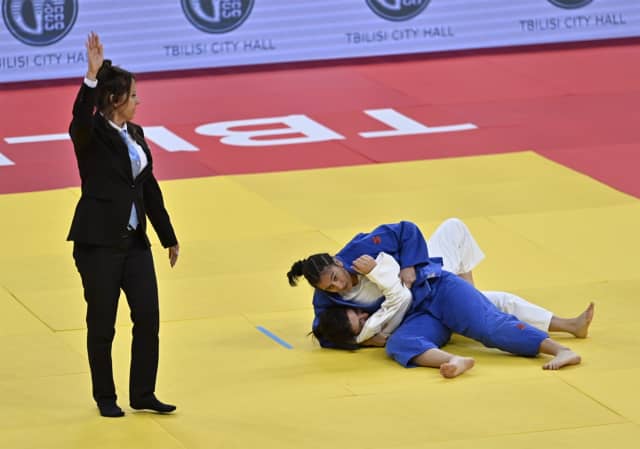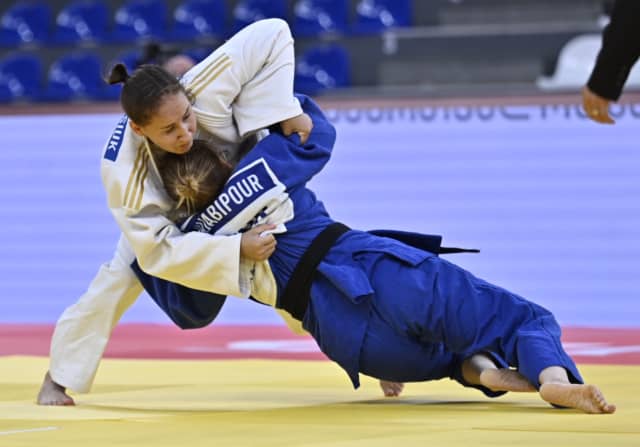“I am here as an IJF event co-ordinator,” he explains with his characteristic calm. “My task is to be the bridge between IBSA and the International Judo Federation. If the athlete commission, coach commission, or any other department needs support, I connect them to the IJF. It is about communication, about making sure every commission can be heard.”
It is a role still fresh for him. Just a few months earlier, also in Tbilisi, Mollaei attended his first IBSA competition. Since then, he has stepped into the world of Para-judo with the same curiosity and determination that once drove him as an athlete. “Before this, I worked with the German Blind Judo Federation, with their men’s and women’s teams, and also attended at the VI German Open. So, I had some experience,” he says.
For Mollaei, the contrast between IJF competitions and IBSA events is striking. “It is so different,” he admits. “The style, the rules, even the way you coach, it is not like IJF judo. Still, I connect well with these athletes. They have strong characters, different lives, different challenges.”
Those challenges are visible on the tatami, where blind and visually impaired judoka grapple with their opponents. To Mollaei, their effort is nothing short of inspiring. “I feel so happy when I see them fighting. Some of them cannot see at all, they cannot focus like I could, but still they fight hard. Life is like this, sometimes hard, sometimes unfair but they push forward. That makes me happy.”
As a man who had to rebuild his life far from home, Mollaei recognises resilience when he sees it. His own journey has been marked by courage, sacrifice and starting again. Perhaps this is why the struggles and victories of Para-judoka resonate so deeply with him. “When I was a professional athlete, I thought only about myself, my training, my weight, my tactics, but here everything is about teamwork. It is not easy. You must adapt your thinking and maybe change your mind to help the athletes in the right way. You need more than one coach per team; it is almost one coach per athlete sometimes.”
Still, Mollaei is not only watching the athletes. His eyes are on the organisation itself. “For me, Judo TV is very important,” he says. “IBSA Judo needs more visibility. Like IJF judo, Para-judo must be popular, people must see it. That is the first impression I have. With better media and more exposure, via platforms like JudoTV, Para-judo can grow stronger.”
For now, he is taking it step by step, finishing his IJF Academy training, learning the ropes of co-ordination and finding his place within the structure. “My time as an athlete is finished,” he reflects, “but I am still part of the judo family. First, I want to help judo and second, I want to help IBSA Para-judo get better and better, higher in quality, closer to the IJF level.”
When asked about his future, Mollaei smiles and stays quiet for a moment. He knows he is at the beginning of another chapter, one written not with medals but with connections, guidance, his own personal experience, and the invisible yet powerful threads that link it all together.
“I’m happy,” he says simply. “I’m happy to work here, happy to have new colleagues. It’s not easy to change from judoka to organiser but it is a new challenge and I am ready.”
For Mollaei, the tatami has always been a place of struggle and triumph. Now, with his new post, he can find a new kind of victory.




